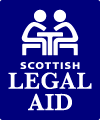SPEAK DIRECTLY TO LAWYERS FOR CHILDREN 24 HOURS A DAY.
John Kilcoyne & Company provide dedicated client care and clear and pragmatic advice.
Children
When parents separate they often have to make difficult decisions about their children. Parents often find it difficult to agree with the best way forward for their children. We are sensitive to these issues and have many years’ experience in assisting parents resolve their disputes in the best possible interests of their children.
Often parents cannot agree on whom the children should live with or how often each parent should see the children. In these circumstances, it may be necessary to seek some specialist advice.
Parental Responsibilities and Rights (PRRs)
Parental responsibilities and rights (PRRs) refer to the responsibilities and rights which a parent has in relation to their child. PRRs apply until the child is 16 years of age. The only exception to this is that the responsibility to provide guidance to the child exists until the age of 18.
Despite what the name may suggest, PRRs are not only available to parents and in some cases parents do not have them. The court has the power to award and/or remove some or all PRRs to/from an individual.
- Where the child lives (residence) and with whom the child has contact with.
- Safeguarding and promoting the child’s health, development and welfare. This includes meeting the child’s health and education needs as well as the more general duty to make sure that the child is properly cared for.
- Providing direction and guidance to the child. This relates to “lifestyle choices” and the way that the child is brought up. It can include, for example, the religion that the child follows. There is also a corresponding right to control, direct or guide the child’s upbringing.
- Acting as the child’s legal representative.
Who has PRRs?
- A child’s mother automatically has full PRRs when the child is born
- A child’s father automatically has full PRRs in relation to the child if:
(a) he is married to the child’s mother at any time from the child’s conception onwards (whether the marriage takes place before or after the child is born)
or
(b) he is named as the father on the birth certificate after 4th May 2006
- A guardian who has been legally appointed by a parent has full PRRs in relation to the child on that parent’s death.
Anyone who can ‘claim an interest’ can apply to the court for PRRs in relation to a child. It is therefore not limited to a child’s parents. In general terms this means anyone with an interest in the welfare of the child. Generally actions are brought by parents, grandparents, siblings or extended family members. You do not need to be biologically relation to the child.
An application needs to be made to the court by a person seeking PRRs. The only exception to this rule relates to a father who can enter into a legal agreement with the child’s mother to obtain PRRs. We advise you seek legal advice if you wish to obtain PRRs or if a court action has been raised against you to remove some or all of your PRRs.
Child Contact
Contact is the legal term used to refer to a person having contact with a child who does not live with them. The term contact refers to both direct (face to face contact) and indirect (telephone, email, letter) contact. You do not need to be the parent of a child to seek contact.
There are increasing numbers of cases involving grandparents and extended family members seeking to maintain contact with a child following a separation/divorce.
You may be able to reach an agreement with the assistance of your solicitor without going to court or through attending mediation or by using a collaborative approach. Sometimes however, this will not be possible and it will be necessary to apply to the court for a ‘contact order’.
Anyone who can ‘claim an interest’ can apply to the court for a contact order in relation to a child. In general terms this means anyone with an interest in the welfare of the child. Generally actions are brought by parents, grandparents, siblings or extended family members. You do not need to be biologically relation to the child to apply to the court for a contact order.
When granting an order, the court’s paramount consideration is the welfare of the child. The child’s views are also taken into consideration where appropriate. Children of 12 years or older are presumed old enough to express a view and whilst this will not be determinative, the court is likely to place strong weight on this. Depending on their age and maturity, the views of children under the age of 12 will also be taken into consideration.
Child Residence
Residence is the legal term used to describe where and with whom a child under the age of 16 years lives on a full time basis. In general, the child lives with one or both parents or in some cases with an extended family member.
The residence of the child is not often a matter of dispute for separating/divorcing couples, however, there are occasions where disputes do arise over where a child lives and with whom. If parents cannot agree, you may be able to reach an agreement with the assistance of your solicitor without going to court or through attending mediation or by using a collaborative approach. Sometimes however, this will not be possible and it will be necessary to apply to the court for a ‘residence order’.
As with contact orders, anyone who can ‘claim an interest’ can apply to the court for a residence order in relation to a child. It is therefore not limited to a child’s parents. In general terms this means anyone with an interest in the welfare of the child. Generally actions are brought by parents, grandparents, siblings or extended family members. You do not need to be biologically relation to the child to apply to the court for a residence order.
When granting a residence order, the court’s paramount consideration is the welfare of the child. The child’s views are also taken into consideration where appropriate. Children of 12 years or older are presumed old enough to express a view and whilst this will not be determinative, the court is likely to place strong weight on this. Depending on their age and maturity, the views of children under the age of 12 will also be taken into consideration.
Relocating with Children
It is not uncommon, following separation/divorce for one parent to seek to relocate abroad to start a new life. However, caution should be exercised as it is not possible to remove a child habitually resident in Scotland from the UK without the consent of all those exercising PRRs over the child.
If you wish to relocate and your ex-partner refuses to provide their consent a specific issue order can be sought from the court. Such an order can only be obtained if the court is satisfied that it is in the best interests of the child. The court must take into consideration all relevant matters relation to the child, including the child’s views if appropriate. Where it is clear that the child is happy and healthy in their environment and have a strong bond with the non resident parent, the courts have favoured the status quo.
If you find yourself in a position whereby your ex-partner has relocated with the child without a specific issue order or your prior consent there are remedies available. Such a relocation would be deemed a wrongful removal under the Hague Convention on the International Aspects of Child Abduction. Provided you have regular contact with the child you could raise a court action for the return of the child. Equally, preventative measures can be taken and orders sought from the court to prevent the child being removed from the UK if you believe this is imminent.
It is important to seek advice as soon as possible if you wish to relocate with your children or if you wish to prevent your ex-partner relocating with the child. If you have any concerns or queries about a child being removed from the UK please contact us.
We also offer a fixed fee preliminary advice package to give you a clear understanding of your options, the remedies available to you and the likely costs for the next steps.
Contact Us:
Tel: 0141 423 8986
201 Bath Street, Glasgow, Glasgow, G2 4HZ





